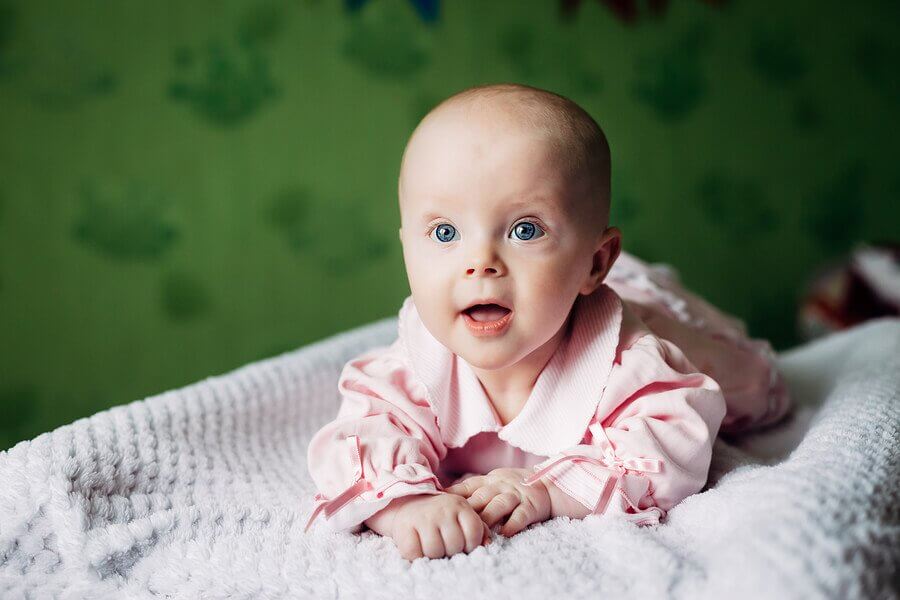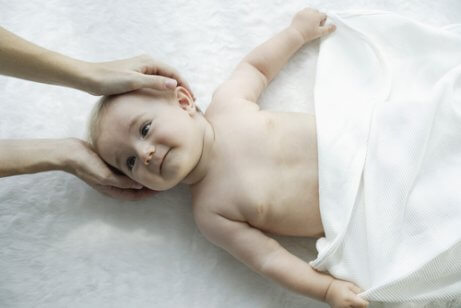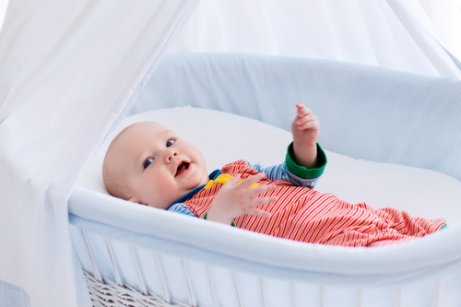How to Test If Your Baby Hears Well

Babies use their 5 senses to discover the world around them and expand their physical and mental abilities. However, not all of their senses develop at the same time.
In order, the first sense that babies begin to develop is the sense of touch. By moving around in every direction within their mother’s uterus, babies are exposed to a variety of tactile sensations.
After the sense of touch come the senses of smell and taste. After that, the sense of hearing. Lastly, babies develop their sense of sight, which develops for the most part after birth.
When it comes to hearing, babies are sensitive to sounds from the time they’re born. Most sounds, including their mother’s voice, make them jump, smile and simply turn their heads to look at what’s going on around them.
However, some babies don’t react to sounds. This can be an indication of a hearing problem. If you think this might be the case with your little one, today we’ll share some simple and quick tests you can try at home.
How to know if your baby hears well
Every baby undergoes certain exams at the hospital right after birth. These tests detect possible hearing loss. Therefore, if a baby is born with hearing problems, they’re usually diagnosed right away.
To be sure, if you want to test your baby yourself, it’s best to do so when he or she is awake. Here are some quick tests that you can try at home, according to your little one’s age:
1. Babies under 3 months of age
To detect if your baby hears well, you should put both hands behind your little one’s head. Then, your child will react to any sort of sound with a quick jerk of the head or blinking of the eyes.

2. Babies between 4 and 6 months of age
Your child should start to move his or her head towards the source of a sound in order to locate it. This mental mechanism is called the “orientation reflex” or the “Preyer reflex.”
To perform this test, you can play music or simply say your baby’s name to see if she moves her head in your direction. You should keep in mind that hearing and speaking are linked. Therefore, around the age of 4 months, babies are able to make sounds.
“The earth has music for those who listen”
—Shakespeare—
3. Babies between the ages of 6 and 10 months
During this stage, babies begin to familiarize themselves with language. In fact, they already understand the meanings of many of the words that they’ve been hearing over the previous months.
They recognize their names and look at you when you call them. They also react to the first words they know, like “mom” and “dad.”
4. Babies between the ages of 10 and 18 months
A baby’s first words usually appear during this time period. In fact, babies can understand much more than what they can express. To know if your baby hears well, ask him or her to point at a familiar object, or to grab it.
If your baby doesn’t react or you aren’t sure about the results, you can talk to a doctor for a second opinion. This may be due to temporary hearing loss as the result of a cold.
At the same time, a family history of hearing loss can also put babies at higher risk for deafness. A doctor’s visit is essential for evaluating your child’s hearing.

How to stimulate the development of hearing in babies
It’s possible to help babies develop their sense of hearing, from birth, through simple actions. In fact, most parents perform them without even comprehending their importance when it comes to their newborn’s hearing.
First, you should make sure to limit excessive noises like television and radio. Keep in mind that babies are more sensitive to sound, and loud noises may end up affecting their sense of hearing.
Start by speaking to your children, even before they can speak. At the same time, when they try to emit sounds, you can imitate them to create dialogue. Don’t forget to include gestures, facial expressions and mimicking. All of these stimulate hearing and curiosity.
Lastly, remember that the first months of life are crucial to a child’s development, and shouldn’t be wasted. The longer it takes to reach the diagnosis of a hearing problem, the more serious the consequences and larger the impact will be long term.
All cited sources were thoroughly reviewed by our team to ensure their quality, reliability, currency, and validity. The bibliography of this article was considered reliable and of academic or scientific accuracy.
- de Aguilar V. Detección precoz de la hipoacusia en el recién nacido. Anales de Pediatría 2005;63(3):193-198. Disponible en: https://www.analesdepediatria.org/es-deteccion-precoz-hipoacusia-el-recien-articulo-13078480.
- Audiocentro Federópticos. Bebés prematuros y audición. Disponible en: https://www.audiocentros.com/bebes-prematuros-y-audicion/.